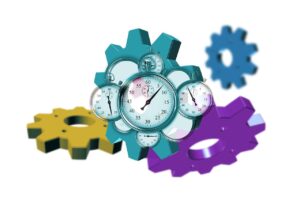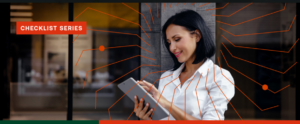3 Takeaways From Big Blue's Big Jury Verdict
Every sophisticated reader knows that this verdict is good for headlines but only an incremental win for IBM.
 A hot summer on the patent front just got even hotter. In a relatively rare big-time jury verdict in a patent case, IBM (aka “Big Blue”), secured an $83mm jury verdict against online coupon purveyor Groupon in Delaware this past Friday. Patent Twitter was quick to react to the verdict, which will undoubtedly be welcomed as evidence that patents are still valuable, despite the well-documented challenges confronting patent owners today. In fact, IBM’s lead trial counsel, John Desmarais, said as much when he conceded that securing this verdict had taken years and millions of dollars when a few licensing meetings should have sufficed. Whether or not any such enthusiasm on the part of patent owners in light of this verdict is justified remains debatable.
A hot summer on the patent front just got even hotter. In a relatively rare big-time jury verdict in a patent case, IBM (aka “Big Blue”), secured an $83mm jury verdict against online coupon purveyor Groupon in Delaware this past Friday. Patent Twitter was quick to react to the verdict, which will undoubtedly be welcomed as evidence that patents are still valuable, despite the well-documented challenges confronting patent owners today. In fact, IBM’s lead trial counsel, John Desmarais, said as much when he conceded that securing this verdict had taken years and millions of dollars when a few licensing meetings should have sufficed. Whether or not any such enthusiasm on the part of patent owners in light of this verdict is justified remains debatable.
In the immediate aftermath of the verdict’s announcement, however, I’d like to focus on three key takeaways of value to patent litigants and their counsel. (For those interested, I also wrote a short preview of the trial on our Markman Advisors blog a few weeks ago). Keeping in mind that trials are imperfect vehicles for determining the true worth of a patent or set of patents — for example, would the jury have reached the same verdict if they would have been told that one of the patents was invalidated in an IPR? — it is nevertheless an important bellwether for one of the industry’s most prominent licensors to have seen its portfolio and licensing practices survive the experience of putting them to the test in front of a jury.
First, for all the talk of the Eastern District of Texas as the last refuge for patent owners, as well as the obstacles the new post-TC Heartland venue rules present to those looking to enforce their patents in a favorable jurisdiction, Friday’s verdict is a good reminder that juries nationwide are willing to give out big verdicts in the right circumstances. (True, IBM’s ask exceeded $150mm, but that larger number may have been an anchoring device to condition the jury that this was a valuable case. Obviously, a high eight-figure verdict is rare in a patent case, and a welcome development for IBM.) More specifically, this case is a reminder that Delaware juries in particular have a history of issuing big verdicts in patent cases. Yes, surviving Delaware’s crowded docket and its judges’ predilection for tossing cases on summary judgment or Alice grounds can be a challenge. But IBM ran the gauntlet, and in less than three years from filing garnered its initial reward with the jury’s validation of the worth of its patents.

How Savvy Lawyers Build Their Law Firm Rate Sheet
Second, this verdict almost forces Groupon to fight to the bitter end, absent a cut-rate settlement offer from IBM — which is less likely to come now that the jury posted a big number that IBM can fall back on in future settlement discussions. So we can expect a full-on assault by Groupon on the verdict in post-trial motions, from challenging the jury’s findings on liability and damages to hoping that the pending Federal Circuit review of Groupon’s IPR win against one of the asserted gets resolved quickly. Either way, the winner of the post-trial wrangling will also have to contend with the inevitable Federal Circuit appeal.
In short, this case could drag on for years to come — especially since Groupon now has to work to change the narrative that it is a freeloading infringer. On the flip side, IBM will likely continue to press its licensing efforts with vigor, irrespective of whether it actually ever gets a dime from Groupon. Interestingly, the main value of this verdict for IBM may come via its licensing efforts with other companies, who have now seen that a jury has seen value in a small piece of IBM’s vast portfolio — and that IBM has the will to take intransigent licensee targets all the way to trial.
Third, the verdict provides a roadmap for patent owners on how to boomerang an alleged infringer’s trial arguments back against the infringer. In this case, Groupon tried to paint IBM as a licensing bully, whose licensing success was more due to its aggressive tactics and vast portfolio of worthless patents than to the quality of its innovation. Groupon’s motivation for making the argument was sensible, in light of the evidence that IBM had garnered mid-eight-figure licensing deals from other leading eCommerce companies. So how did IBM blunt the force of Groupon’s arguments? By reminding the jury that the existence of the other licenses was proof that other sophisticated companies, unlike the freeloading Groupon, had seen the value of IBM’s innovation. And perhaps more importantly, by reminding the jury that IBM’s patent portfolio is a direct result of the company’s major investment in research and development.
Put another way, IBM’s investment in innovation has achieved wide industry recognition, which allowed IBM to portray Groupon as an opportunistic freeloader rather than a conscientious objector. While every patentee is different, it is a worthwhile reminder that even a small subset of patents from huge patent portfolios can be made more attractive to lay jurors when they are reminded of the causal link between investment in innovation and patents.
Sponsored

How Savvy Lawyers Build Their Law Firm Rate Sheet

How To Build And Manage Your Law Firm Rate Sheet

Trust The Process: How To Build And Manage Workflows In Law Firms

How To Build And Manage Your Law Firm Rate Sheet
Ultimately, every sophisticated reader knows that this verdict is good for headlines but only an incremental win for IBM. At the same time, there are a number of worthwhile lessons we can take from the verdict. Since patent trials are so rare, and verdicts of this size rarer still, we really need to take every opportunity to analyze situations of this type to the fullest. There will surely be more media discussion of this verdict in the days and weeks to come. In the meantime, we can close with another question to ponder. Did Watson predict this result? Now that would be — as my six-year-old is fond of saying — supercool.
Please feel free to send comments or questions to me at [email protected] or via Twitter: @gkroub. Any topic suggestions or thoughts are most welcome.
Gaston Kroub lives in Brooklyn and is a founding partner of Kroub, Silbersher & Kolmykov PLLC, an intellectual property litigation boutique, and Markman Advisors LLC, a leading consultancy on patent issues for the investment community. Gaston’s practice focuses on intellectual property litigation and related counseling, with a strong focus on patent matters. You can reach him at [email protected] or follow him on Twitter: @gkroub.
Sponsored

Not All Legal AI Is Created Equal









